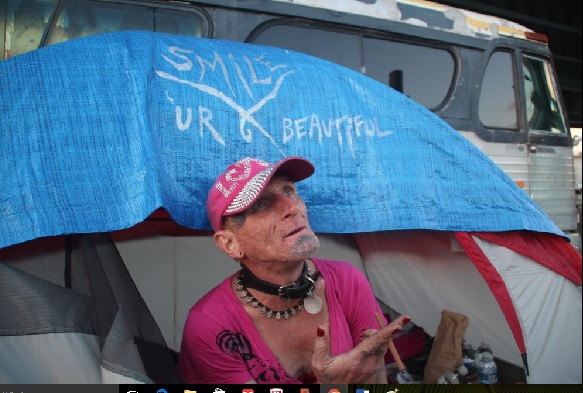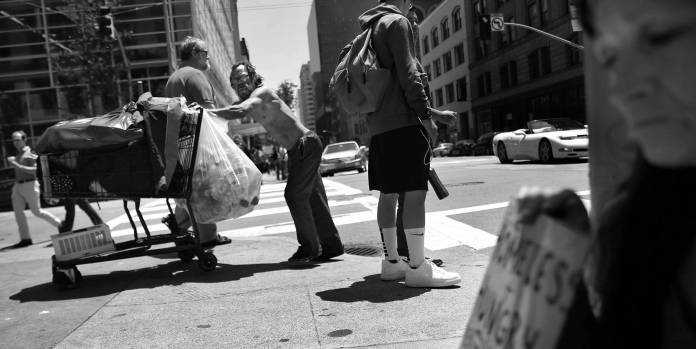So we all wrote about homelessness last week, 48hills and most of the rest of the local news media, and the goal – as Chronicle Editor Audrey Cooper, who created the idea, made it clear – was to look not just as problems but solutions.

The Chron did a classic “best practices” kind of story, looking at what works in other cities and what the experts say, and had some very solid suggestions about supportive housing. The paper also explained why police crackdowns don’t typically work.
We went a different route, and talked about why this problem exists in the first place and what steps policy makers could take right now to address it. We also talked about why Scott Wiener and Mark Farrell are not helping at all.
Then came the Sunday Chron, with a front-page editorial, which Editorial Page Editor John Diaz crowed about. It was called “A civic disgrace.” And it showed that Diaz either didn’t read his own paper’s stories or found them lacking, since his approach (and that means the “official” Chronicle line) undermined much of what Cooper and her staff spent five months trying to do.
The editorial starts out with the usual moaning – jeez, this is terrible, we can’t go on like this anymore, we have to make this a priority. Then it attacks existing programs, many of them very successful, and attacks existing nonprofits, calling them the Homeless Industrial Complex and saying that the city’s money “probably is not being spent with anything close to optimal effectiveness.” The solution: Close down or eliminate some of those programs, like they did in Houston.
Nothing in the Chron’s reporting suggested that there is any significant waste or misspending in homeless programs. I’m sure if we looked hard enough, we could find some – there is no way to spend $241 million in public money without some failures. There’s also no private-sector operating that spends $241 million without some waste and mismanagement.
The editorial does say – and I think everyone in the system agrees – that we need a better tracking system to make sure people get the right services. SF, in the tech capital of the world, is way behind in this. But I’m sure the minute the city creates a contract for that work, Matier and Ross will say it costs too much money.
The Chron stories pointed out, and the editorial acknowledges, that some of the most difficult cases cost the city the most money in treatment. “Some 1,500 chronically homeless people cost the city about $80,000 a year each.” Yes, John: And wouldn’t it be interesting to see what would happen if we gave those people enough money to rent a place in the city (less than $80,000 a year)? We used to do that; public assistance was enough to pay rent in San Francisco in the early 1980s, and there was less homelessness. Then, often with the support of the Chronicle, the city, state, and federal governments cut welfare and SSI – to save the taxpayers money.
There is no accountability for homeless programs, Diaz says. There is also no accountability for the Chronicle’s role in promoting politicians and policies that have created this problem and allowed it to get worse.
And then this:
It is neither inhumane nor “criminalizing poverty” to enforce laws against aggressive panhandling, tent encampments, or defecation and urination in public places.”
Actually, it’s both – and the Chron reporters showed this week that the law-enforcement approach just doesn’t work. Maybe Diaz didn’t read that story.
Come on, people: The first step in solving this crisis is admitting that the policies that we’ve used in the past, promoted by the Chron and the politicians it endorses, haven’t worked. But instead, we remain a progressive city with a major daily newspaper that takes editorial stands based on the old neo-liberal philosophy that has created the greatest economic inequality in modern history.
That, folks, is a civic disgrace.
Not a lot going on at City Hall this week. The July 4 holiday means there is no Board of Supes meeting, few committee meetings, not much on the agenda of other commissions and agencies. Next week the final budget discussions will start, and as we head into the end of July, the supes will have to decide what final measures to put on the ballot.
Meanwhile, we listen to the sound of fireworks we can barely see (why does San Francisco even bother?) and celebrate the founding of a nation that has gone way, way off track.




